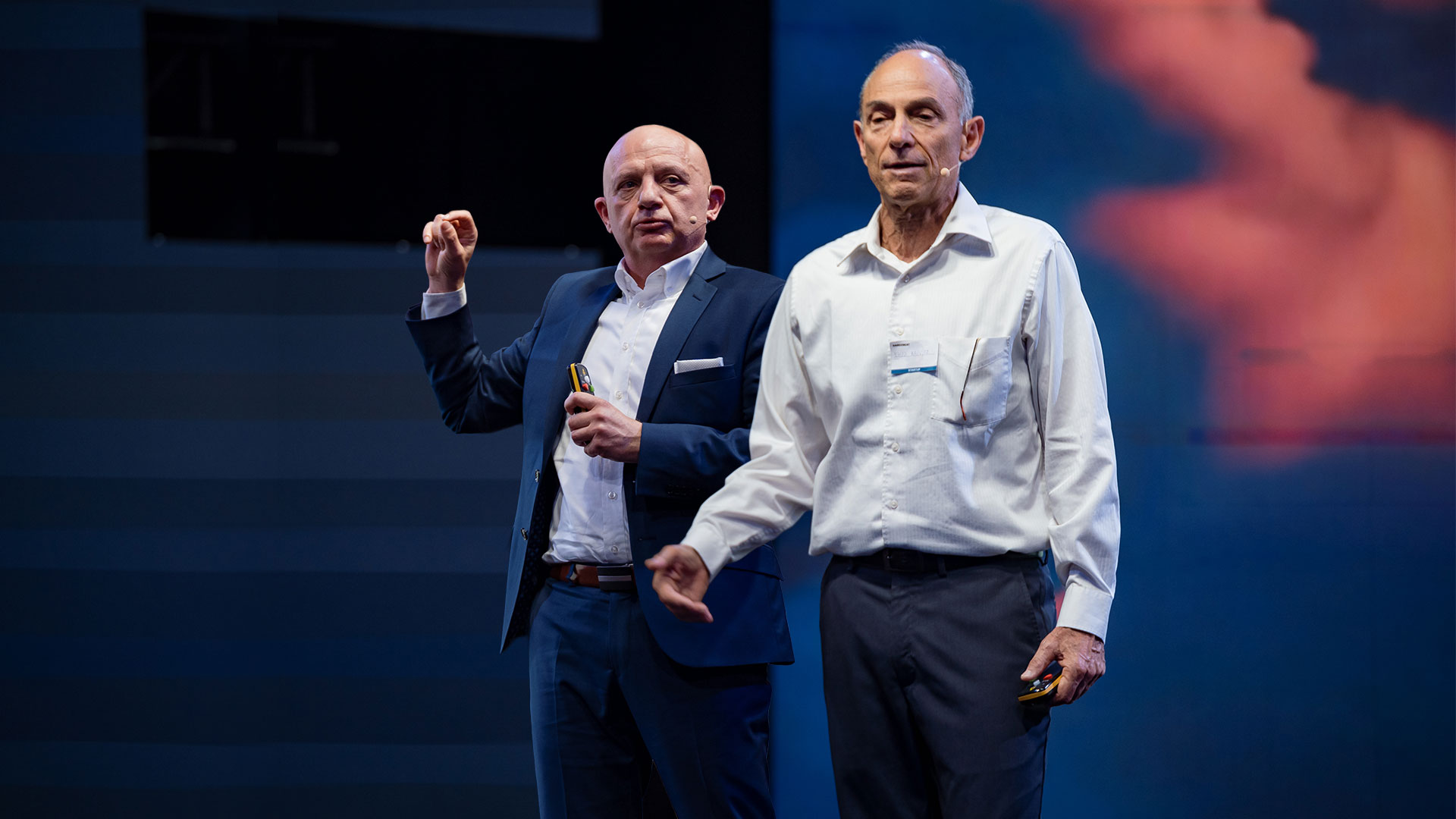
Neuromedical is a Polish-Israeli med-tech company, whose originator and main inventor is Dr Tamir Ben David – a serial entrepreneur with more than 100 patent applications in medical devices. Working with Dr hab. Adam Broncel – a neurologist and neuromodulation expert who brought the project to Poland and heads its clinical part – the company is developing VGuard, the first all-home transcutaneous vagus nerve stimulation (tVNS) system designed specifically for patients with mild cognitive impairment (MCI) and early-stage Alzheimer’s disease. The team is now operationally led by Ehud Raivitz, former longtime CEO of Elcam Medical, an Israeli manufacturer of disposable medical devices and advanced infusion components, which under his leadership has grown into a global OEM supplier with revenues of $150-300 million and sales in more than 40 countries.
How does it work?
VGuard therapy begins with the insertion of a pair of ultra-thin, flexible “ear-clip” electrodes, whose anatomically contoured shape precisely encompasses the auricle shell just above the auricular branch of the vagus nerve – the only place where the vagus nerve runs subcutaneously, allowing effective stimulation without surgery. The electrodes connect to a pulse generator which controls frequency, width and cycle of the impulses to align with natural sleep cycles and memory consolidation periods.
Stimulation mainly takes place during the REM sleep phase, when the brain naturally consolidates memories. Everything is managed by a mobile app, which guides the user step by step, records the course of therapy and allows remote review by the supervising doctor.
The entire system is protected by five patent families covering both electrode design and unique nocturnal stimulation protocols.
Why we invested
Our decision is based on five complementary considerations. First, VGuard is a breakthrough, low-invasive technology. To date, the “standard” players in Alzheimer’s therapy have been cholinergic drugs and memantine, which only slow the degradation of cognitive function, with no real improvement in patients’ quality of life. In contrast, the latest generation of anti-amyloid antibodies, such as lecanemab (Leqembi) and donanemab (Kisunla), show moderate improvement on the ADAS-Cog scale, but cause severe side effects – edema and intracerebral hemorrhage (ARIA) – in a significant proportion of patients, which is why the European Medicines Agency has denied them marketing approval, even though the FDA has authorized their use. Alternative attempts at neuromodulation, such as classic invasive vagus nerve stimulation (iVNS), require surgical implantation of electrodes and a pulse generator, carrying the risk of infection, nerve damage, and the need for subsequent reoperation for battery replacement. VGuard takes all this burden off the patient: with its transcutaneous “ear-clip” electrodes, it delivers effective vagus nerve stimulation without cutting the skin and without pharmacological side effects, combining the clinical effectiveness of neuromodulation with the safety and convenience of a wearables device.
Secondly, early clinical evidence. The company conducted a medical experiment involving 51 patients with MCI or early Alzheimere. VGuard improved the ADAS-Cog scale score by up to 5 points, and mild side effects (mostly short-term headache or skin irritation) occurred in only 17% of participants. This is a result unattainable for current non-invasive therapies and comparable (with better safety) to the latest, expensive biologic drugs, which have not been approved in Europe due to the risk of intra-brain bleeding.
Third is the growing, global problem. There are 47-50 million people living with dementia in the world today, and according to Alzheimer’s Disease International, this number will triple by 2050; in the US alone, the patient population will grow from 7 million to 12-13 million. An aging population and a lack of competitive solutions create a huge, growing therapeutic gap that VGuard can fill.
Fourth – an experienced, international team. Operationally, the company is today led by Ehud Raivitz, who, as long-time CEO of Elcam Medical, has grown this Israeli manufacturer of disposable medical devices to annual revenues of about $100 million and global sales in more than 40 countries, gaining competence in scaling production and entering regulated markets. Israel’s engineering and business competencies are combined here with a Polish clinical background under the direction of Adam Broncel, a neurologist with many years of experience in neuromodulation. The company is supported by numerous renowned scientists such as Prof. Piotr Galecki, Prof. Jan Konopacki, Prof. Elinar Ben Menachem and Prof. Michael Davidson.
Finally – the potential for high returns. The neuromodulation market is characterized by fast and high-profile M&A transactions: for example, the acquisition of ImThera Medical by LivaNova for $225 million occurred even before the product was fully commercialized. With solid patent protection, proven clinical efficacy and a first-in-class treatment for Alzheimer’s, Neuromedical has all the parameters to become the next attractive target for large players or market IPOs, giving us a chance for a significant return on investment (which we strongly hope for).
